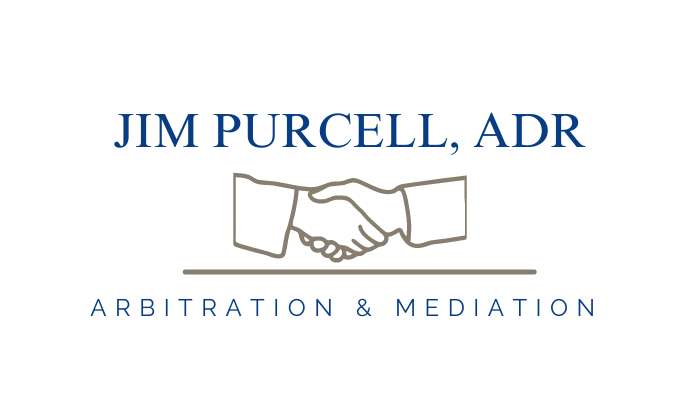Demeanor and personality are important factors in reaching a mediated settlement.
MEDIATION
I thoroughly enjoy the challenge of helping parties resolve seemingly irresolvable complex disputes.
I take personal satisfaction in helping parties move on with their lives and their businesses by reaching resolution. My success in achieving mediation settlements is above 75%.
Over 95% of lawsuits settle before trial. Counselors who guide their clients professionally through early, successful mediations do their clients enormous good.
– Personality
I work hard to gain the trust and confidence of counsel and the parties in an unbiased and neutral way. My experience as a combat military officer, athlete, trial lawyer, client, business executive, and family man form the basis for my style in the conduct of mediations.
Patience and persistence are key in hard-fought mediations, and I am both patient and persistent. I also strive to innovate to find solutions that the parties and counsel may not have considered.
In legal disputes, advocates naturally want to act zealously on their client’s behalf. However, mediation requires a more delicate approach as mediation places counsel in a sometimes delicate position vis a vis clients.
I am skilled at toning down rhetoric and creating an atmosphere conducive to settlement. I take time to understand the parties, including their history, personalities, and hot spots, thereby laying the groundwork for resolution.
– Approach
I have lived through mediations both as counsel and client. As a client, I’ve suffered through ADR proceedings led by mediators with no industry knowledge who placed unreasonable demands on counsel, resulting in unpleasant surprises.
That simply is not fair to counsel or the parties!
I do everything I can to ensure that counsel knows, in advance, exactly what the mediation process will be.
As a former advocate, I know that the last thing counsel want is to be surprised, particularly in the presence of their clients.
For non-AAA and AHLA mediations, I use a Mediation Agreement that thoroughly recites what will happen, when, and what the various participants’ responsibilities are. In addition to initial conferences with all counsel, I typically conduct ex parte conferences with counsel to learn about any confidential issues that may hinder or facilitate settlement.
Confidentiality is key in mediation. There are two levels of confidentiality. The first is that anything told in confidence to me in ex parte or caucus conferences will remain confidential. Second, whatever happens in a mediation, including comments, positions taken, and outcomes, remains confidential, unless disclosure is legally compelled.
At some point in the mediation process, if I believe it will enhance the likelihood of settlement, I will be evaluative, meaning that if I believe a party is taking a reasonable or unreasonable position, I will say so; always in a way that is consistent with gaining a trusting relationship with that party.
I am the “honest broker” with no ax to grind, and given that I have years of experience I can bring to bear, I believe I owe it to the parties to tell them what I think at that critical moment of impasse. It often makes all the difference.
Representative Mediations:
Healthcare and shareholder/partner rights and obligation disputes
Notice provisions between insurers and hospitals or other providers
Contract, patent, and trademark issues involving American and Chinese parties (multiple mediations)
Multiple aspects of billing laboratory and pharmacy services to health insurers
Contract terminations involving hospitals or provider organizations and contractors (e.g., purchasing agent, ACO, etc.)
Allegations of unfair business practices in insurance and healthcare
